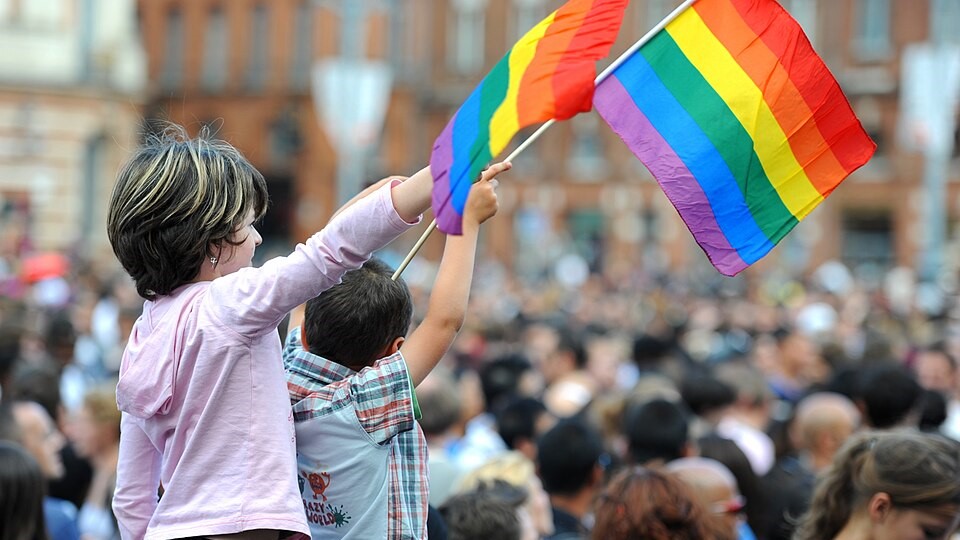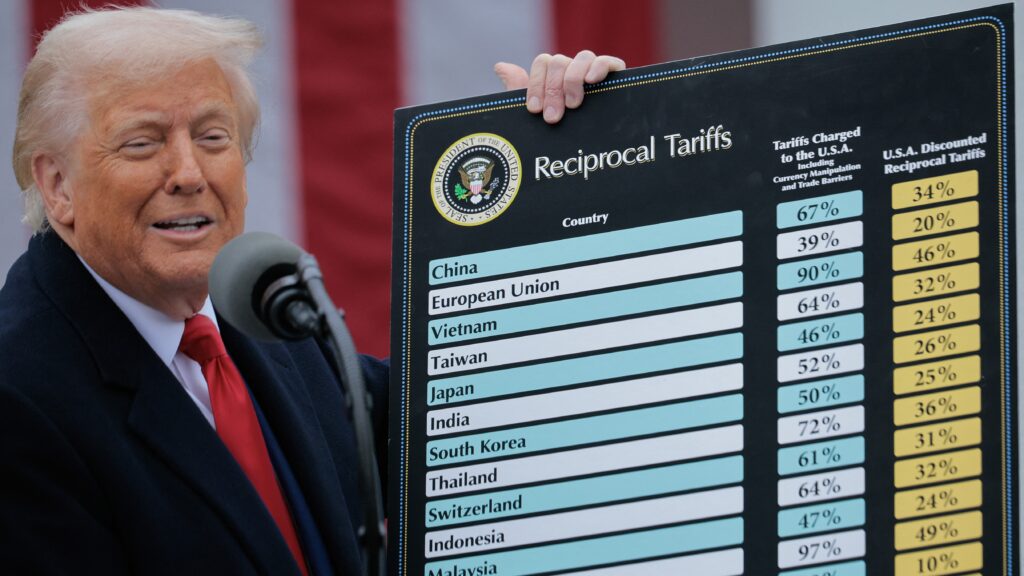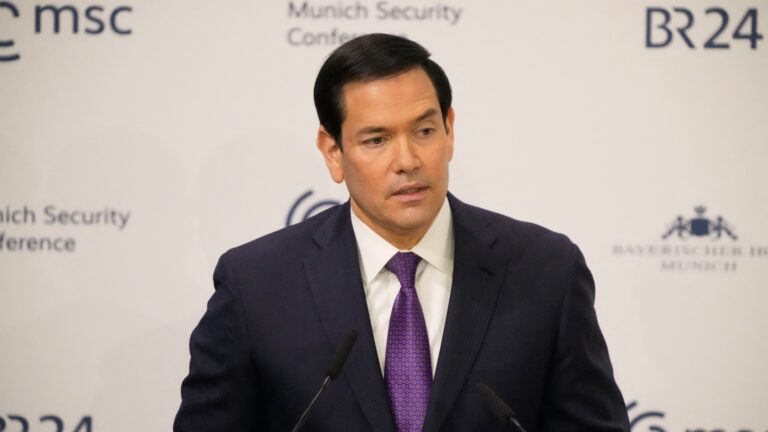American Southern Baptists plan to vote this week on acting to overturn Obergefell v. Hodges, the U.S. Supreme Court ruling that legalized same-sex unions ten years ago this month. They would be joining Republican lawmakers from nine states after Congressman Josh Schriver introduced the marriage resolution in his home state of Michigan, saying that the Obergefell ruling ‘is at odds with the sanctity of marriage, the Michigan Constitution, and principles upon which the country was established.’
‘Increased instances of religious persecution have been a consequence of the Court’s ruling ten years ago,’ Schriver said. He cited, as examples, the state attorney general’s 2019 announcement that state-funded adoption agencies could no longer legally turn away LGBTQ+ couples because of their religious beliefs, and a Grand Rapids wedding venue that faced fines and harassment in 2022 after it refused to host weddings for same-sex couples.
Marriage between a man and a woman, which begets the family, has always been socially and culturally seen as the only legitimate and acceptable haven for sexual activity and childbearing. It has always been safeguarded and regulated by norms because it:
- Assured the birth of children into two-parent families as the natural result of human sexuality;
- Provided a structure for child socialization through role division between the father and mother within the marriage;
- Enabled parental role division by providing economic security for the stay-at-home partner (traditionally the mother) through legal support obligations, in addition to moral, social, and severe legal strictures against divorce;
- Ensured provisions for parents in their old age through their children’s reciprocal moral and legal support obligation.[1]
‘Marriage between a man and a woman…has always been socially and culturally seen as the only legitimate and acceptable haven for sexual activity and childbearing’
Yet since the infamous Obergefell decision, not only has the institution of marriage been redefined, but the broader socio-cultural fabric of society has begun to decay, as children as young as five years old are being subjected to indoctrination by the LGBTQ+ agenda.
The Court’s Rationale
The Supreme Court’s understanding that ‘the history of marriage is one of both continuity and change’ implies that if one feels his or her emotional needs are met by a significant other, then that alone is sufficient grounds to contract a marriage. This bypasses—if not, undermines—the essential properties of marriage: unity and indissolubility, ordered toward procreation and the proper upbringing of offspring.
‘Changes’, Justice Anthony Kennedy stipulated, ‘such as the decline of arranged marriages and the abandonment of the law of coverture, have worked deep transformations in the structure of marriage, affecting aspects of marriage once viewed as essential. These new insights have strengthened, not weakened, the institution. Changed understandings of marriage are characteristic of a Nation where new dimensions of freedom become apparent to new generations.’
The ruling decision explains that the concept of liberty—not freedom—under the Due Process and Equal Protection Clauses of the Fourteenth Amendment does not allow for same-sex couples to be denied the right to marry. While freedom refers to the state of being free and includes legal and political rights, liberty suggests protection from arbitrary or undue external restraints, particularly by the government.
Juridical Argument against Same-Sex Unions
In his dissenting opinion, Justice Antonin Scalia emphasizes that the Constitution—and for that matter, any just law of any nation—places limits on self-governance. These limits include the protection of what has been culturally and socially accepted as part of the human social order, i.e., the institution of the family, which is founded on the matrimonial consent between man and woman.
‘When the Fourteenth Amendment was ratified in 1868,’ Scalia said, ‘every State limited marriage to one man and one woman, and no one doubted the constitutionality of doing so. That resolves these cases. When it comes to determining the meaning of a vague constitutional provision—such as “due process of law” or “equal protection of the laws”—it is unquestionable that the People who ratified that provision did not understand it to prohibit a practice that remained both universal and uncontroversial in the years after ratification.’
‘The nature of marriage is that, through its enduring bond, two persons together can find other freedoms, such as expression, intimacy, and spirituality.’ (Really? Who would have thought that intimacy and spirituality—whatever that means—could be considered freedoms? And if intimacy is, one would think freedom of intimacy is abridged rather than expanded by marriage. Ask the nearest hippie. Expression, sure enough, is a freedom, but anyone in a long-lasting marriage will attest that this happy state often restricts, rather than expands, what one can prudently say.) ‘Rights, we are told, can “rise…from a better informed understanding of how constitutional imperatives define a liberty that remains urgent in our own era.”’ (How can a better informed understanding of constitutional imperatives—whatever that means—define an urgent liberty and give rise to a right?)
Reviving the Essence of Marriage
I recall that a couple of years ago, during a dinner with friends, one of them told me that the Catholic Church was wrong in prohibiting same-sex marriages. She referred to how her gay son contracted a civil marriage with his lover. Her argument was that if two individuals love each other, regardless of gender, then they should be allowed to marry each other. I responded:
‘If love then gives me the right to contract a marriage, then getting angry at my would-be spouse grants me the freedom to walk out of the marriage. Or, if I marry a woman, why should I remain faithful to her if later I find so-called love with another woman? Where do we draw the line if we take it upon ourselves to redefine the institution of marriage?’
‘Love between man and woman cannot be built without sacrifices and self-denial’
In such cases, love is reduced to a mere emotional gratification that altogether circumvents the sacrifice of duty and responsibility. Indeed, as Pope St. John Paul II taught:
‘Love consists of a commitment which limits one’s freedom—it is a giving of the self, and to give oneself means just that: to limit one’s freedom on behalf of another. Love between man and woman cannot be built without sacrifices and self-denial…’[2]
It is true that if I am free to marry, i.e., not bound to another woman or a religious vow, without love, marriage would be shallow, though the matrimonial bond is much deeper than that. However, this does not mean that those with same-sex orientations are lepers and are to be treated as such. Nevertheless, as Pope Leo XIV recently reminded us: ‘Marriage is not an ideal but the measure of true love between a man and a woman: a love that is total, faithful, and fruitful [whence the couple become] one flesh and enables [them], in the image of God, to bestow the gift of life.’
In our present era, because of relaxed attitudes towards marriage, men and women are willing to live together without assuming the commitments and sacrifices of married life. Citing a lack of financial sustainability as a justification for cohabitation, they undermine the alliance between man and woman as intended by our Creator. Yet while this can be remedied, same-sex unions cannot because they are contrary to the natural law.
The Southern Baptists are right on target—if only the American bishops would likewise take a lead on this!
[1] Harry D Krause, ‘Comparative Family Law’, The Oxford Dictionary of Comparative Law, Oxford, Oxford University Press, 2006, p. 1112.
[2] John Paul II, Love and Responsibility, San Francisco, Ignatius Press, 1993, pp. 135, 208.
Related articles:







